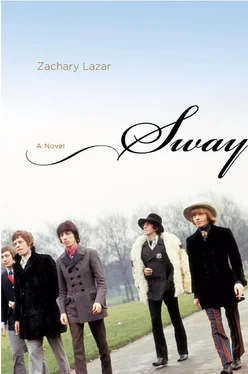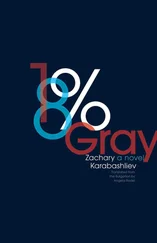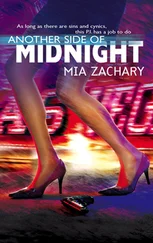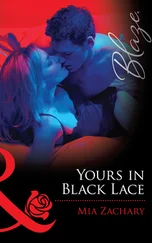An empty space suddenly opened up in front of the stage. It got bigger and bigger. For a while no one would go near it. It got so big that Mick could see the grass between the motorcycles, lit up by the footlights, and for a few seconds there was something close to silence. Keith grabbed the microphone, pointing at some bikers who were still swinging their pool cues, demanding that they stop, but it was impossible to see what was happening beyond the reach of the lights. When they started the song again, there was a moment when Mick caught the eye of some boy who implored him to stop, who mouthed the words in a way that was unmistakable, and Mick stood there looking at him, taking in what he was saying, thinking it over. He had not seen the body on the ground, stabbed in the neck, pummeled to death by pool cues, a seventeen-year-old body in a green suit. He started dancing in a frenzy, shaking his whole body, looking right into the other boy’s eyes, defying him. Even then, there were still people cheering, still people with hungry, solemn stares, still people dancing. There were still people trying to get closer to the stage.
Style has an aura that words only diminish. The words follow, trying to explain, but the glamour fades in the glare of opinions and ideas. There is no more Lucifer now, no more Prince of Darkness, no more Angel of Light. There is a return to what was always there before, the silence.
The front door seemed to recede back into the distance as Anger looked at it, making up his mind. He had framed it with newspaper, putting up sheets around the lintel and the jambs, tucking them around the edges and fastening them down with tape. He had covered the doorknob with more tape, and he’d taped the hinges and the sides of the door itself. It looked violated and alive now, a demented shrine. A newspaper picture of Charles Manson stared numbly out at the room, his body slumped to one side, flanked by policemen. There were pictures of Bobby, Susan, Leslie, Tex, Patricia — the girls with their shy, ecstatic smiles, the boys with their thoughtful, intense stares.
He spread some more newspaper on the floor, making an improvised carpet from the doorway to the coffee table. Then he took the first can of paint out of the shopping bag. When he opened it, it looked like oil on top, gold oil that was streaked with lines of dark or gilt specks. He turned it slowly with the wooden stirrer, cross-legged on Mick’s floor, bringing up the pigment until it was burnished into a consistent brownish gold, honey-thick, gleaming in the lamplight.
It would not be something that Mick or any of the others would understand. When they came back, it would just be there: the door painted gold, a kept secret, resonant with silence. Maybe it would seem threatening. Maybe it would seem benign. He didn’t know. He didn’t know if they would think of him right away, or at all.
The paint went on unevenly, sometimes too dark, dense with glitter, sometimes a sticky, almost translucent smear. He went over a thin patch while it was still wet, but the result was streaky and he moved on to another area. It was important to do it precisely. It would take several coats to get the finish right. It had to look like the door had not been painted but had simply materialized, cast in gold. When it was done, he would peel away the tape and the newspapers and pack them up in the shopping bag to take home with him. He would look at what he’d done: the ordinary door transformed, the violation of the break-in softened into something that was not quite a violation at all. The fact that he had done it and not just thought about it would make the moment when he walked through the door last longer than an ordinary moment. It would stay in his mind for a long time, this disappearance, this ambiguous farewell.
It is raining in the theater now. There is the rumble of an explosion, so loud that Bobby can feel it rattling inside his body, pressing at his bones. In front of the screen, Anger’s silhouette strides across the stage in its robe, an image flickering above him, a zodiac glyph, then an image of Mick’s face, singing. There is a flag at one side of the stage, a Nazi flag with a swastika at its center, and Anger lifts it in the air, displaying it, shouting words that Bobby can’t understand. The dream calls for blood. That’s why it has always mattered, why it recurs. There is no end or purpose to it, only greater speed, the pull toward the glistening in the darkness. He lights the flag on fire, holding it away from his body. The music behind him is an adrenaline thud, a racing heartbeat, a dream of violence unfolding in a pink neon haze. Onscreen, Mick and Keith play a song to half a million faceless blips. A biker whispers directives into another biker’s ear. An image of Lucifer begins to coalesce. He is a red curtain over still water, a blue gas flame reflected on chrome, a black sky pocked with green specks of light. He is a dead boy spread-eagled on the ground, his arms tattooed with anchors and skulls, blood in his hair. A plastic skull rotates on a pedestal whose base is the intricately spoked wheel of a motorcycle. It bleeds into a massive image of Anger’s sweating, frenzied face, and as Bobby watches, he knows that this will never end, that neither he nor Anger will ever leave this room.
Projected now is a picture of Bobby himself, sitting cross-legged on a wooden crate, raising his arms in the darkness without knowing why. Patterns of light crawl across his face, generated by a slow strobe held behind a black card punched through with holes. The light bleaches out his features, makes him look even younger than he is. He raises his eyebrows and opens his eyes wide in what might be self-mockery or just an effort to speak. He can’t remember anymore what he would have been trying to say. He can’t remember what it was that he and Anger were trying to accomplish. His image onscreen lifts his arms in the air as if to absolve him of responsibility, or as if to ask what happens next, what he should do.
It is June 6, 1968. Mick is standing by himself in a vocal booth, one hand pressed to his ear to hear himself better above the backing track, as the tape begins to roll. The news around the world that night is that Robert Kennedy, five years after his brother, has just died of the gunshot wounds he sustained the night before. It is as if the decade itself knows that it can never return, that it has only these few years to live out its own extremes. The light on the sound buffers is a dim beige, a predawn staleness of smoke. Mick hears the music: a flat patter of bongos, a resonant thud of conga drums, a locust-like hiss of maracas. They’ve spent three days in the studio, fumbling, grasping, finally to arrive at this moment when it works. He backs up and lets out a yelp, a monkey screech, saturated in echo. He makes grunting noises from deep inside his chest, rising on his toes so that his body shakes, his hand moving down his hip to his thigh. On the monitors, the piano strikes a wide, sustained D chord and the song suddenly spreads and hovers, Mick’s lips tensed into a sneer as he begins his delivery, a song about the Devil, about violence, death magic, its glamour and mystique. His head is silhouetted by a floodlight affixed to the ceiling, so that the split ends of his hair glow a bright white, like the filaments in a lit bulb. He is Lucifer — in that moment there is no better word for how he has changed. He is an escape from everything drab, the music behind him shot through with exotic colors that have as little to do with darkness as a stained-glass window. An electric bass thuds out a pattern of syncopated triplets and eighth notes, matching the repetitive pounding of the drums, and with each note comes a twitch in Mick’s legs, a jangle of his spine, a defiant lifting of his chin, a hundred little signs to let you know that it’s not fake this time, that for the three minutes of this song the god will be real. He raises his arms, all sinew and muscle. The decade will pass, forty years will pass, and maybe you’ll hear a snatch of it through a car window, the sound of it still a surprise over a stranger’s radio, the old song sent around the planet in waves that never end.
Читать дальше












